Tea. Such a tiny word, you wouldn’t think its origins are anything to write home about. And yet…
The word “tea” comes in many, many different forms for some interesting reasons. While of course words are different in every language, the evolution of “tea” is an interesting one. So we thought we’d spend some time looking at the eteamology of our favorite little word that has had such a worldwide impact.
Land vs. Sea
As we all know, tea originated from China and was originally exported from there to the rest of the world. While there is only one character for the word “tea” in Chinese – 茶 – there are several pronunciations depending on what part of China you were from.
As tea left China, eventually the words used in different parts of the world were influenced by the trade routes. In general, the countries that received their tea by a sea route use words that start with a “t” – examples include:
- Tea: English
- Thé: French
- Tè: Italian
- Té: Spanish
- Tee: German
- Tae: Gaelic
- Thee: Dutch
These “t” pronunciations are believed to have been derived from the Min-Nan dialect (also called the Amoy dialect, which was a port (now known as Xiamen) where tea was shipped from). In that dialect, the character for tea has a “t” pronunciation and spelling (“te”).
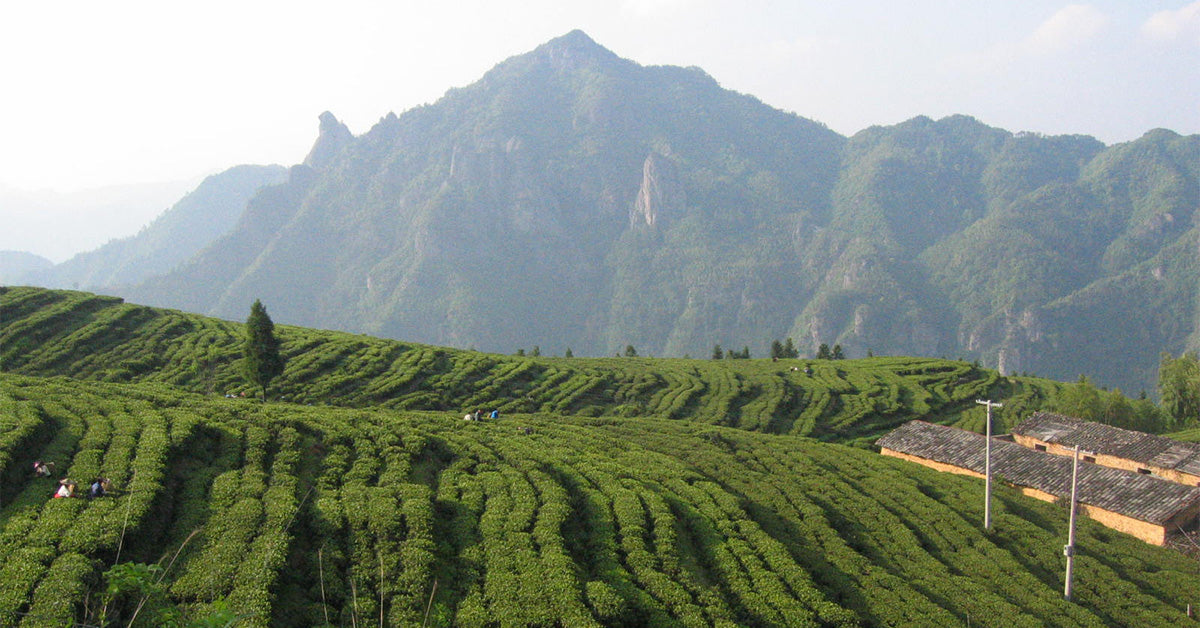
If the tea came by land, however, you will find “tea” words with a “ch” pronunciation and spelling. This is believed to have origins from the Mandarin “cha.” Examples include:
- Cha: Portuguese, Greek
- Chai: Hindi, Swahili
- Chay: Russian, Turkish, Persian
- Ocha: Japanese
- Shay: Arabic
When ordering chai in the U.S., it is perfectly acceptable to ask for a chai tea…”, a beverage that around these parts, has come to mean you’re getting the spicy, milky, delicious tea that is the national drink of India. But should you find yourself in India and you ask for “chai tea,” – you’ve just asked for “tea tea.” You’ve basically said the tea equivalent of “I’m going to the ATM machine, hope I remember my PIN number. Since “chai” means “tea,”.
Wee Bit o’ Tea Slang
If you’re lucky enough to find yourself in Ireland, you may want to order a “cuppy tay” which is the colloquial version of the Gaelic “cupán tae.” Remember, it will be strong!
Not surprisingly, the British have several slang phrases for their beloved tea. These include our favorite, “cuppa,” which is obviously short for and now synonymous with enjoying a cup of tea. Tea might be referred to simply as “brew” or “cha,” and a teapot may be called a “billy.”
“Char” is another slang term for tea in Britain, thought to have been brought into the country by British India servicemen and is a derivative of “chai.” The word “charwoman” has two possible origins. A charwoman is a person who typically cleans homes or offices. In that case “char” is thought to have been derived from the word “chore.” However, these women also typically served tea and biscuits in those homes or offices, so the use of “char” as slang for “tea” is also applicable in that case!

Finally, we have the uniquely British language known as British or Cockney rhyming slang. It is a fascinating use of words that rhyme with the word intended to be used and can be incredibly confusing while also highly entertaining. The creativity behind it is inspiring.
Likely the most well-known use of Cockney rhyming slang ‘round these parts comes from the Ocean’s 11 movie. The character Basher, who is British, at one point says “We’re in Barney.” When the team doesn’t understand what he means, he says “Barney. Barney Rubble. Trouble. We’re in trouble.”
That’s how it works. “Rubble” rhymes with “trouble,” so the Flinstones’ character Barney Rubble’s name, shortened to Barney which doesn’t even rhyme, stands for “trouble.” Got it?
Back to tea. In Cockney rhyming slang, “Rosie Lee” means “tea.” To make it even better, it’s shortened to “Rosie” – so if you want to enjoy some tea, just ask for a cup of Rosie! Those Brits have all the fun. Let’s see if you can guess this one for fun – what does “loaf” (short for “loaf of bread”) stand for in Cockney rhyming slang? Leave your guess in the comments!



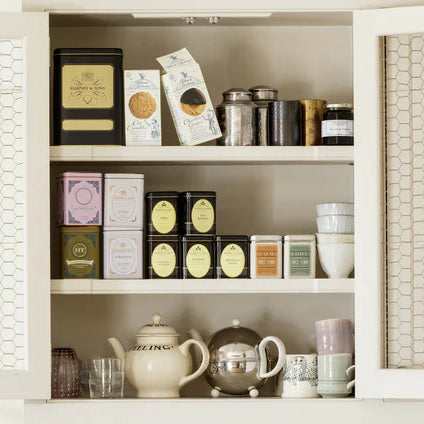
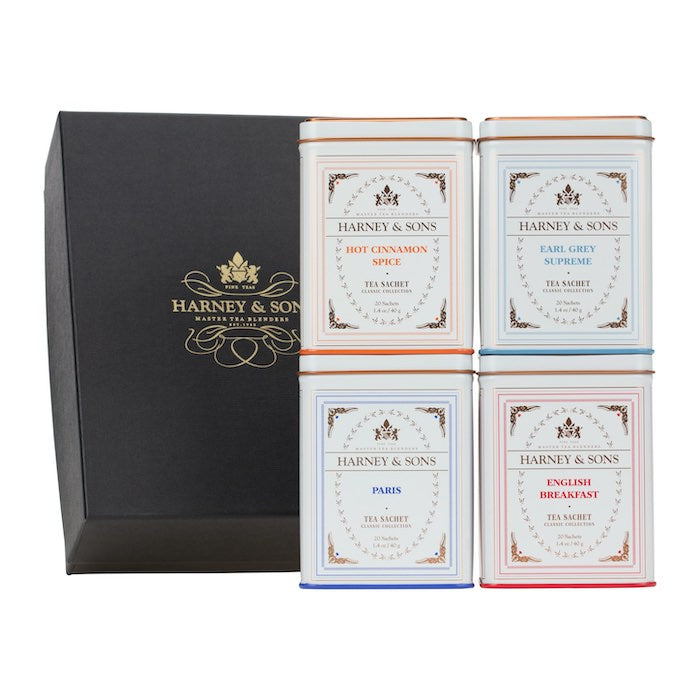
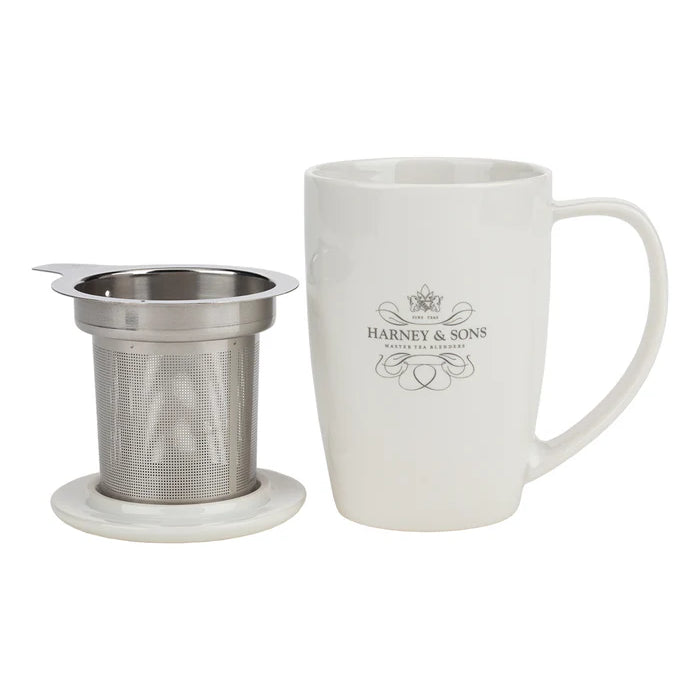
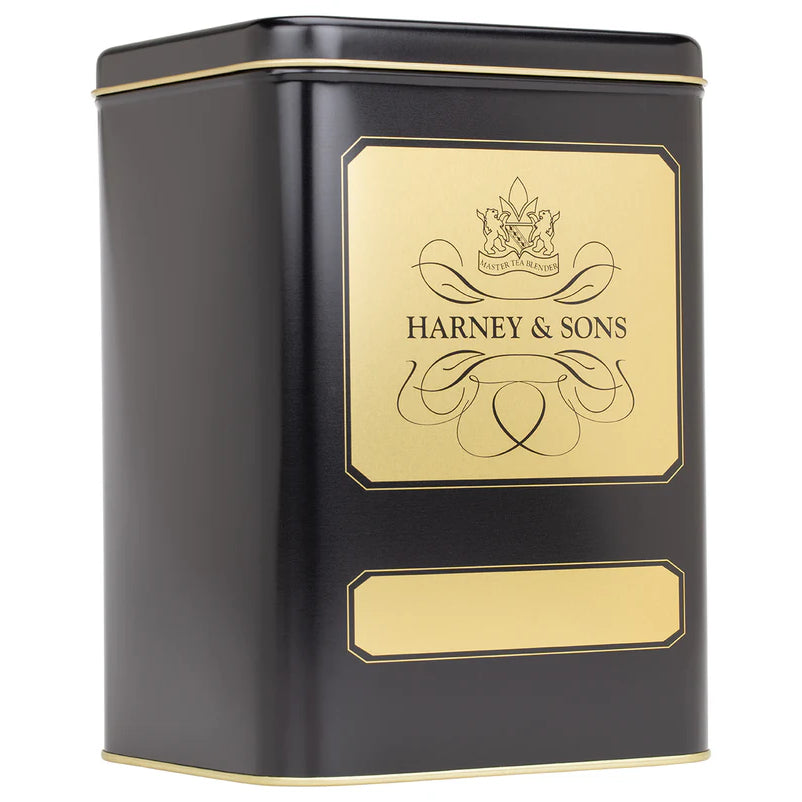
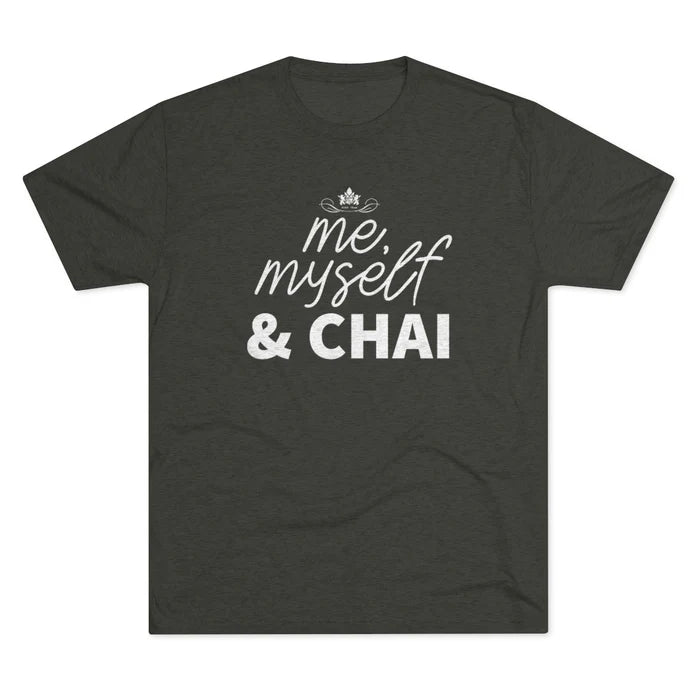
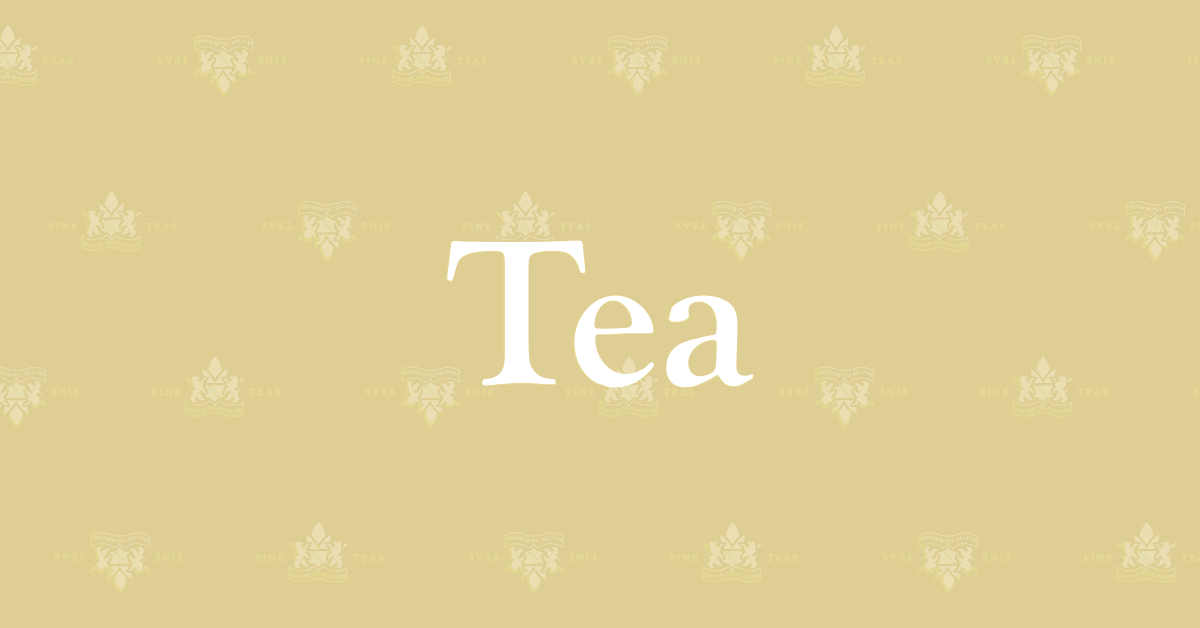
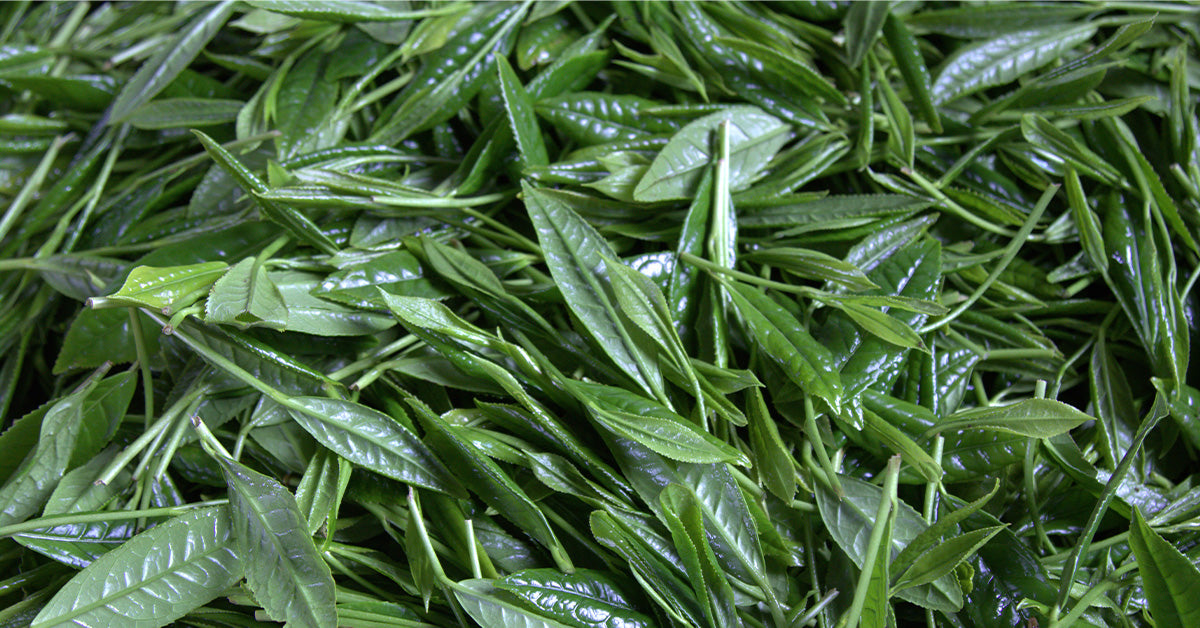
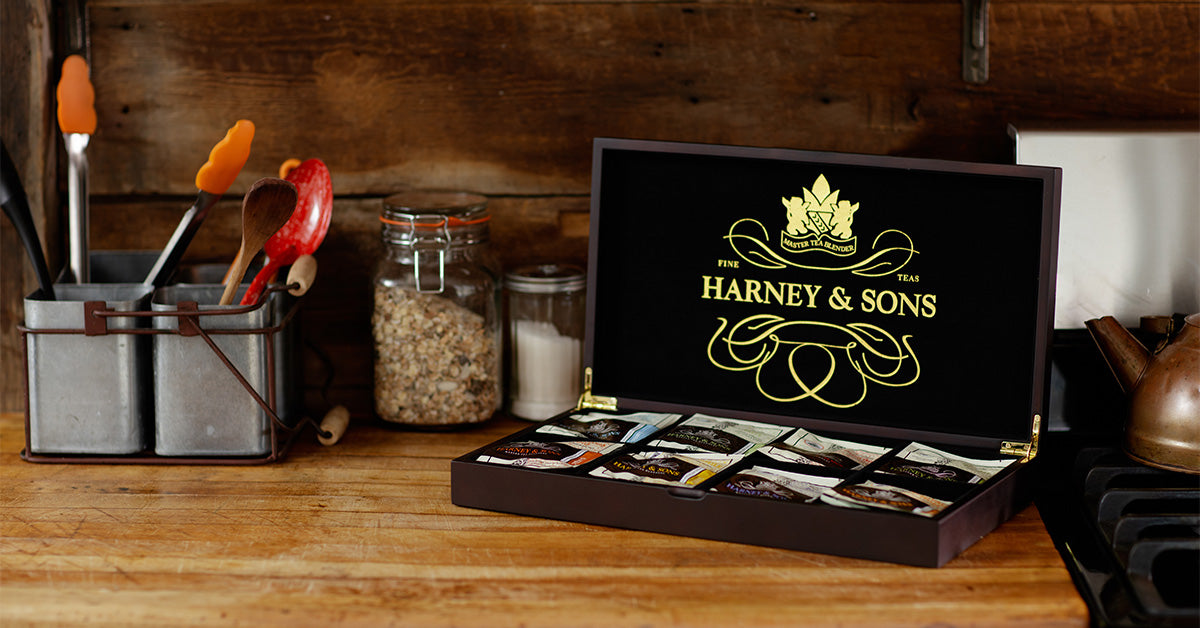
6 comments
Claudette
Tea information plus word trivia? You’ve made my day happier. (Thanks for helping me use my loaf!)
Tea information plus word trivia? You’ve made my day happier. (Thanks for helping me use my loaf!)
Karen
Love the “eTEAmology! Lots of great details, thank you! It’s wonderful that you share your enthusiasm and knowledge. And I can’t imagine a day without some version of Harney tea!
Love the “eTEAmology! Lots of great details, thank you! It’s wonderful that you share your enthusiasm and knowledge. And I can’t imagine a day without some version of Harney tea!
Peachy
Lovee this article, thank you! I learned so many new things and Cockney rhyming slang sounds like my type of slang!
Lovee this article, thank you! I learned so many new things and Cockney rhyming slang sounds like my type of slang!
Stephen
Head. “Loaf” means “head” as in use your brain, common sense, thinking it through.
If someone’s not using their loaf, they could be called a “Berk”…
Head. “Loaf” means “head” as in use your brain, common sense, thinking it through.
If someone’s not using their loaf, they could be called a “Berk”…
Truesmom
I’m guessing it refers to “toast”.
I’m guessing it refers to “toast”.
Shelby
Fascinating article! I had no idea what loaf could possibly mean so I looked it up. Never, in a million years would I have guessed that. I love my Harney and Son’s tea, I drink a cuppa (or 3) each and every day.
Fascinating article! I had no idea what loaf could possibly mean so I looked it up. Never, in a million years would I have guessed that. I love my Harney and Son’s tea, I drink a cuppa (or 3) each and every day.